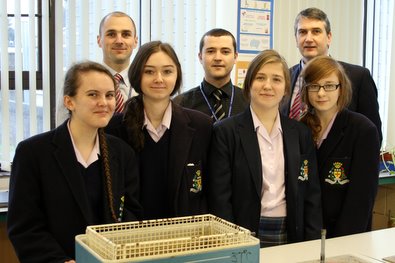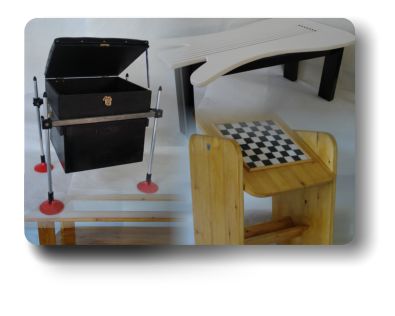It was the last great battle between knights, where personal worth even decided on victory and defeat. Or so we now see many young Australians and New Zealanders, who try to relive the ordeal of his great-grandparents on the other side of the planet. A history of trenches between beach and mountains, early morning attacks, hills conquered and lost again and again and a slow defeat.
At least the cold as -6 degrees centigrade could experience who arrived on Sunday to the hills of Gallipoli to spend a night outdoors. At dawn, a mass, transmitted by 70 speakers and six giant screens boot gave three military ceremonies honoring troops Australians, New Zealanders and Turks who fought here in 1915 in one of the peripheral stages of the First World War.
British, French and Pacific allies could not take the strategic Dardanelles Strait, which would have opened the way to Istanbul. It was one of the bloodiest battles in history, killed about 100,000 soldiers, but the tribute to the enemy is the central part of the commemoration and the Turkish flag is lowered out of respect for the fallen the other side.
Turkish Foreign Minister, Ahmet Davutoglu, did the honors with his New Zealand counterpart, Murray McCully, President of the Australian Senate, John Hogg, and Veterans Minister, Warren Snowdon. Wreaths and twinning speeches marked the memory of "a dark day that created links between Australians, New Zealanders and Turkish people" in the words of McCully.
To date, the 'Anzac Day', the acronym ANZAC, Australia and New Zealand Army Corps, Army Corps of Australia and New Zealand is a public holiday in both ocean countries. More and more people prefer to live where it happened. Some 6,500 visitors from both countries, mostly young, attended the Mass at dawn, Elif tells Wade, from the Australian embassy.
It is a ride: you have to climb about five miles from the beach rough territory to reach the cemetery of the 'Lone Pine' ... the same route as Australian troops were unable to complete under fire from Turkish machine guns. Also for Turkey, the battle is a pivotal moment, apart from avoiding defeat in the Great War: medals won here and pick a young officer in command of the unit that repelled the attack of the 'Anzac': Mustafa Kemal.
Eight years later made history by defeating the Greek and Russian armies, the Ottoman dynasty abolished, draw on the map a new country called Turkey and took the name Atatürk. Do not forget his adversaries in the foothills of Canakkale-Gallipoli the Turkish name is preserved in marble, the speech in 1934 dedicated to the fallen: "There is no difference between the Johnnies and Mehmets.
Having lost his life in this country, now they are our children. " 


At least the cold as -6 degrees centigrade could experience who arrived on Sunday to the hills of Gallipoli to spend a night outdoors. At dawn, a mass, transmitted by 70 speakers and six giant screens boot gave three military ceremonies honoring troops Australians, New Zealanders and Turks who fought here in 1915 in one of the peripheral stages of the First World War.
British, French and Pacific allies could not take the strategic Dardanelles Strait, which would have opened the way to Istanbul. It was one of the bloodiest battles in history, killed about 100,000 soldiers, but the tribute to the enemy is the central part of the commemoration and the Turkish flag is lowered out of respect for the fallen the other side.
Turkish Foreign Minister, Ahmet Davutoglu, did the honors with his New Zealand counterpart, Murray McCully, President of the Australian Senate, John Hogg, and Veterans Minister, Warren Snowdon. Wreaths and twinning speeches marked the memory of "a dark day that created links between Australians, New Zealanders and Turkish people" in the words of McCully.
To date, the 'Anzac Day', the acronym ANZAC, Australia and New Zealand Army Corps, Army Corps of Australia and New Zealand is a public holiday in both ocean countries. More and more people prefer to live where it happened. Some 6,500 visitors from both countries, mostly young, attended the Mass at dawn, Elif tells Wade, from the Australian embassy.
It is a ride: you have to climb about five miles from the beach rough territory to reach the cemetery of the 'Lone Pine' ... the same route as Australian troops were unable to complete under fire from Turkish machine guns. Also for Turkey, the battle is a pivotal moment, apart from avoiding defeat in the Great War: medals won here and pick a young officer in command of the unit that repelled the attack of the 'Anzac': Mustafa Kemal.
Eight years later made history by defeating the Greek and Russian armies, the Ottoman dynasty abolished, draw on the map a new country called Turkey and took the name Atatürk. Do not forget his adversaries in the foothills of Canakkale-Gallipoli the Turkish name is preserved in marble, the speech in 1934 dedicated to the fallen: "There is no difference between the Johnnies and Mehmets.
Having lost his life in this country, now they are our children. "


No comments:
Post a Comment